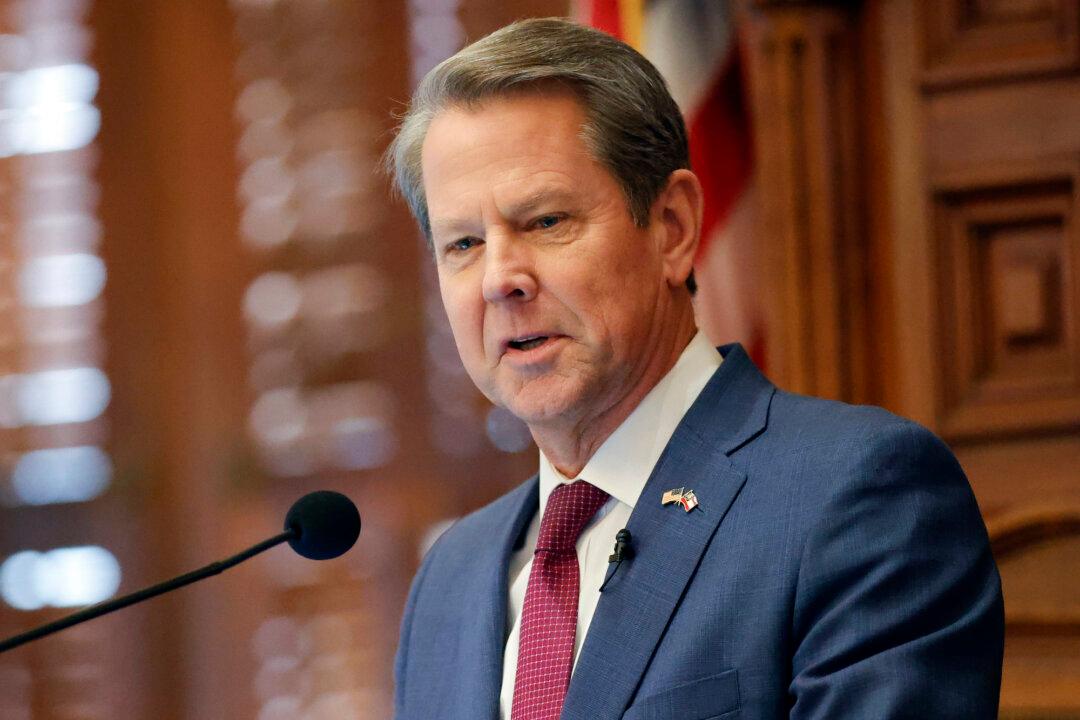Georgia Gov. Brian Kemp has told world business leaders his state has taken significant steps toward decreasing its use of coal, natural gas, and oil to generate electricity, but more will need to be done to reach the industries’ demand for using alternative power sources, such as solar.
In the last few years, Georgia has been trying to position itself as a capital for electric vehicle (EV) production by welcoming companies into the state to build EV cars, batteries, and other EV technology. Hyundai Motor Group, LG Energy Solution Ltd. and solar panel maker Qcells are among the most prominent companies to have inked deals in Georgia so far.





